|
Event Timing: SUNDAY April 28, 2024
Event Address: Always August Farm, 664 Habberton Rd., Fayetteville, AR Contact 479-445-7564 [email protected] JUST FOR FUN! Come get some practice over show jumping and XC fences. The entire course will be on grass and feature eight show jumps with riders immediately beginning a XC course of an additional 6-8 fences. We are offering a derby that is jumping only (SJ + XC) and one that is a COMBINED derby for those who choose to ride in the NWADC show on Saturday and do an eventing dressage test (please ride USEA test A at your level). Separate NWADC entry required, but scores will count towards a combined total. For horses riding in both the regular and combined derby, the FIRST round will count wards the combined derby.
Estimated timetable to be sent out on Wednesday prior to event. Questions encouraged! Test 479-445-7564 or email [email protected] For combined Derby enter NWADC Show - SEPARATE ENTRY - Must ride "Test of Choice" and choose appropriate eventing test "A" for level. We are the host venue for the NWADC Show but are NOT responsible for judge selection, scheduling, scoring, or collecting entry fees.
0 Comments
I was invited on Randy Wilburn's "I am Northwest Arkansas" podcast.
In this podcast, I talk about my entrepreneurial journey and the challenges and triumphs of expanding Always August Farm. What you will learn in this episode:
All this and more on this episode of the I am Northwest Arkansas podcast. Tune in to KUAF 91.3 FM to listen to the I Am Northwest Arkansas podcast on Ozarks at Large. This episode is sponsored by*: Signature Bank of Arkansas “Community Banking at its Best!” Northwest Arkansas Council – “Life Works Here!” *Note: some of the resources mentioned may be affiliate links. This means we get paid a commission (at no extra cost to you) if you use that link to make a purchase. Connect more with I am Northwest Arkansas:
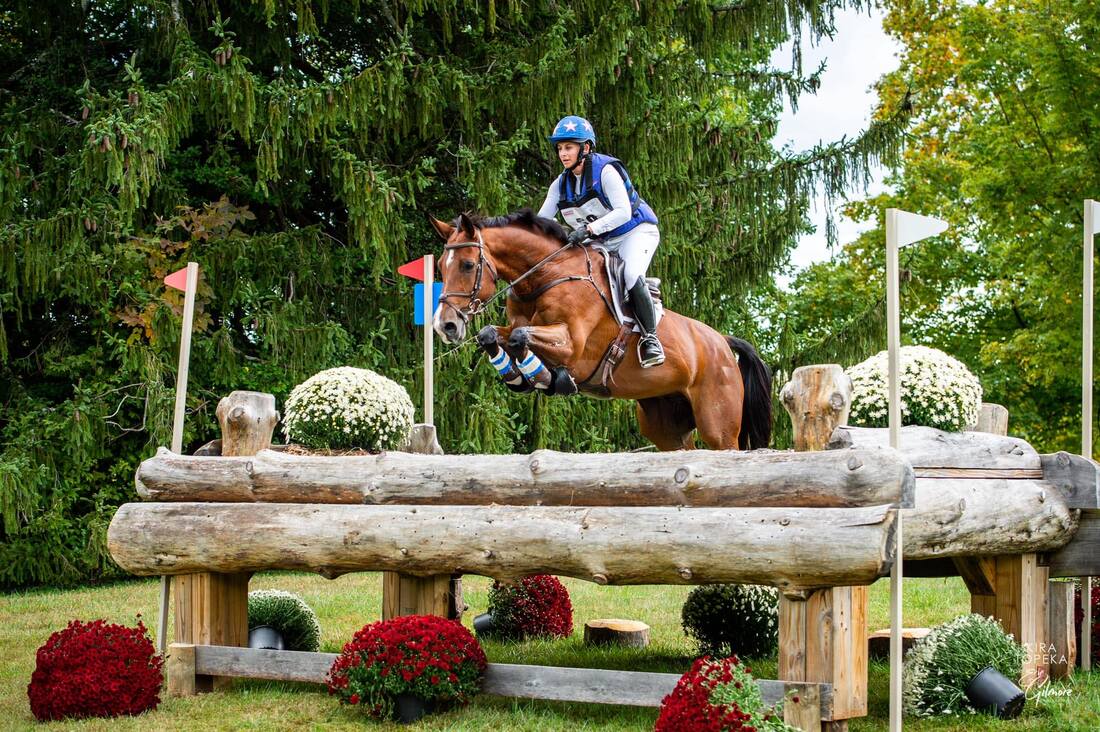 Event Timing: Dec 15-17, 2023 Join us for a fun and informative clinic with 4* event rider and ICP level IV certified instructor, Rebecca Brown. All levels welcome! Weather dependent, Saturday will focus on SJ - groups from ground poles through 3’6”+, and Sunday will be small group XC. As an Advanced Level event rider, Rebecca runs RB Riding as a competitive, FEI level Eventing program at Estrella Farms. Rebecca’s most notable accomplishments include: USEA ICP Level IV Certified Instructor USDF Bronze and Silver Medallist Winner of 2017 Colorado CCI***-L Winner of 2005 Jersey Fresh CCI***-L, Multiple top 10 FEI placings Member of Gold Medal NAJYRC CCI***-L Team Always August Farm has 24 beautiful acres and a brand new XC course with many new jumps including a mound, water, and competition quality portables. Rebecca is very welcoming and positive - everyone will gain experience, confidence, and knowledge of how to improve both horse and rider. This event books up quickly. REGISTER HERE Event Address: Always August Farm, 664 Habberton Rd., Fayetteville, AR Contact us at (479) 445-7564 or [email protected] 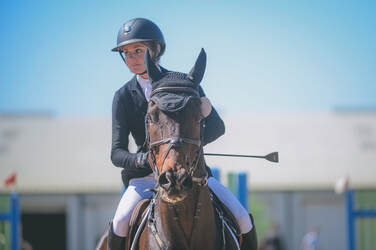 Originally posted on LinkedIn... For more than a decade, I kept one foot firmly on either side of a line. My week days 9-5 were filled with fulfilling and meaningful work helping A/E/C firms grow, and most recently, at Verdant Studio, working with a group of incredibly talented, inspiring, and passionate artists, architects, and designers. But...every early morning, evening, and weekend, I've been growing (almost accidentally) something else. What started out as a very passionate hobby, turned into a fairly successful side hustle, and then grew into a full-fledged business: Always August Farm. I've been involved with horses since I was a young child. I have always been obsessed with learning everything about them; how to care for them, and how be a better rider. Through the chaos and turmoil of my youth, the barn was always my refuge. In college, I worked for the University of South Carolina Equestrian Team, and then worked for Sandy Hamm Martini, learning all about rehabbing off the track thoroughbreds. In 2009, after I graduated with my bachelor's degree, I purchased some land, renovated an old cabin made out of rail road ties, and moved a couple horses home. I started boarding a few extra horses to subsidize the expenses of my own, then started teaching some lessons occasionally. After a few years, I upgraded my property to some better real estate and land quality, built a new barn and a home from scratch on a bigger piece of land. I woke up one morning and realized I had multiple barns, over 30 clients, and was buying/selling hundreds of thousands of dollars of horses every year. The drive to be the best rider, horse trainer, coach, and competitor hasn't faded with adulthood, it's just gotten more and more relentless. In June, I got a scholarship from the Maryland International Equestrian Foundation to compete at their FEI event, Maryland International. There was no way in good conscience I could continue to straddle that line and say yes to the time commitment of that opportunity...but there was no way I could say "no." Taking this trip has already led to a number of other amazing opportunities for me as a professional rider and trainer - and they are just the beginning of what I want to accomplish. While I've left the full-time "real job" life, I'm not stepping out completely. I'm still working on a few special projects and available on a contract basis to anyone needing marketing or research help in the AEC industry. Seeing many around me in the equestrian industry sorely lacking in business education, support, and professional services, I've also decided to officially launch Stable Business (www.stablebusiness.net), as a way to fuse everything I've learned from both industries so far. I can't wait to keep learning, growing, and pursuing my dedication to having the best equine facility in northwest Arkansas and helping other people succeed with their horses and businesses!
Event Timing: August 11, 2023 4:00PM - Whenever we are done! Event Address: Always August Farm, 664 Habberton Rd., Fayetteville, AR Contact 479-445-7564 [email protected] JUST FOR FUN! Come get some practice, with jumper rounds in the shady covered arena. Rounds are unjudged and untimed, but clear rounds will receive a token that can be used to buy prizes. Each height class will have two different courses posted - Round A and Round B.
SIGN UP HERE Join us for a fun and educational day camp. This is the perfect way to learn more about horses and get in plenty of riding time!
Event Timing: June 5-10, 2023 8:30AM - 1:30PM Daily Event Address: Always August Farm, 664 Habberton Rd., Fayetteville, AR Contact Clara Chen at (214) 585-1667 Ages 7+, all levels of riders welcome. DAILY AGENDA INCLUDES:
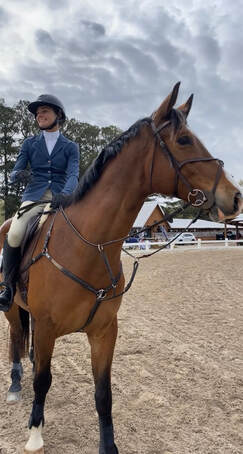 While many of us buy a horse thinking it’s going to be a lifetime friend, the reality is that horses can live 30 years or more and are extremely time consuming and expensive to keep. It may not be feasible to keep a horse forever. The following article details some factors to consider when looking to sell a horse for most english disciplines. If you have a horse to sell, you have some options: 1) List the horse yourself, 2) Enlist the help of your regular trainer, 3) Send the horse to another professional who specializes in selling horses that are similar to yours 4) Sell the horse at a public auction or sale. In this article, I’m going to talk mostly about the first two options and some of the reasons it might be good to consider #3. In my business, I typically see the following reasons behind a horse sale:
Pricing Pricing horses in today's market is tough! For green horses with little show experience, breeding and quality of movement have the greatest impact on pricing. For going horses with experience, show results have the greatest impact on price. If you’re looking to price your horse, start with a basic internet search of what horses of a similar age and show experience/results are selling for. Green OTTBs are generally going to fall into a pretty narrow price range, with the higher end being those who have excellent movement or jump and the lower end those who are older with previous injuries, a lot of nervousness/tension, and other difficulties that may make them hard to handle by an average amateur. If your horse has no show record, can’t be bred, and isn’t the ideal candidate for absolute beginners, you’re going to have a hard time selling him in any market. Location is a big factor in horse sales. I prefer to sell horses in Aiken or Ocala at the beginning of the season because there’s a lot of buyers looking in that area, and the horse will sell quickly for a better price. The climate and access to facilities such as a XC course can also help me show off a horse to the best of its ability. I will say, there’s a growing market in NWA for rideable horses under $15K with potential for hunters/jumpers/dressage! If you’re listing a horse somewhere without an active riding community in the discipline your horse is best suited for, be prepared for it to take a lot longer, and accept a lower price, than if you take the horse to a better location. If I have a horse with a particular skill set, special considerations, or I need to sell a horse at certain time of year, I will often use a sales agent or trainer in a "hotter" horse market. I am not going to have an easy time selling a preliminary level eventer in Arkansas in July – no one wants to come here to try that horse! Most professionals charge a 10%-15% commission on the sale price of any horse they are representing. That commission covers the time that goes into making videos/advertisements, time spent finding and talking to potential buyers about the horse, the potential liability involved in having someone come to try the horse, and the time involved in the vetting/contract process. If I’m selling the horse myself and I have an accurate assessment, I’m probably going to network that horse by sending a video and basic description to other trainers I know. If that doesn’t hit, it’s time to make a good sales ad. Sales Ads Absolutely do not post a horse advertisement or talk to anyone about the horse you have for sale unless you can inform them of:
Have decent photos and/or video ready to go. If you’re selling the horse as a jumper, you have to have good over fences video. For any discipline, it’s good to have high quality images of both sides of the horse to evaluate conformation. While Facebook still seems to get a lot of activity for horse sales, keep in mind that livestock ads are illegal and you need to be careful about getting your post flagged for removal. Many people will use terms such as “Low 5 figures” or X # of carrots, to help with this. There are some other great horse sale sites such as dreamhorse.com, manestreetmarket, warmblood horse sales, sporthorse nation, etc. Do some searching around and don’t be afraid to post ads in a few different places. If I’m selling a horse from my farm, I’m going to make sure I put up its information on my website and use a variety of photos / videos on different social media channels. Once you have advertisements up, it’s important to respond to inquiries in a timely manner. If someone under the age of 18 contacts you about your horse, request that they have an adult or trainer copied on the conversation. There's no benefit to discussing details about the horse with someone under the age of 18 because they likely are not making any real sales decisions and can't conduct a legal transaction. Don't be afraid to ask questions of the buyer. Start with, “Can you tell me more about what you are looking for?” If the person can’t answer that question, they are a tire kicker. If they are looking for something that your horse is not, tell them so! Don’t waste your or the other person’s time if it’s clear it won’t be a good fit. You don’t want to sell your horse to someone they aren’t suited to, it only opens the door for bigger problems later. So you have a potential buyer... If you find a qualified adult and have shared photos/videos, answered all the basic questions, and had an honest discussion about the buyer’s riding ability and desire to purchase your horse, it’s time to set up a time for them to come meet the horse in person. A few notes on trials, while a lot of buyers will request this, I generally avoid off-site trials unless I know the person or they are very local. No matter what is signed, there’s a lot that can go wrong in an off-site trial! If you have a potential buyer coming to meet your horse, make sure the horse is well prepared. That means they have been worked regularly, are clean, trimmed up, and have clean, well-fitting, tack ready to go. It is a good idea to also let the potential buyer see how the horse is to catch, groom, and otherwise handle on the ground. This also lets you as a seller get an idea of the potential buyer's comfort level. If possible, I always recommend the seller or seller's trainer ride the horse for a few minutes in front of the buyer, explaining how the horse is usually warmed up, any preferences or quirks the horse has, and what a typical riding session might be like. From there the buyer or buyer’s trainer can get on. If an amateur rider comes without their trainer, I’m going to encourage them to get comfortable, but also set clear guidelines about what they can or can’t do with the horse on my property. If I have a green OTTB who has jumped some X-rails, I’m NOT going to let a potential buyer take that horse over a 3’ XC jump. I know this sounds obvious, but you’d be surprised how many buyers have very different standards or expectations. Do not be afraid to say, “I don’t think this is a good fit!” or “I’m not comfortable with you doing that.” Other things to discuss with a potential buyer include what their boarding, vet, and farrier situation is like, how often they ride or take lessons, and other environmental factors that may affect how your horse performs in the future once sold. While not every sale works out, as a professional, I don’t want to sell a horse into a new situation where I KNOW it will fail – that’s going to reflect poorly on me and hurt my business in the future. Vetting If the buyer likes the horse, it’s probably time for them to arrange a pre-purchase exam. Ideally the potential buyer picks the vet, but in more remote areas (like here), I sometimes have to give them a list of options. I’m upfront if there’s a vet that has regularly treated the horse, because the buyer may not want use that one. I am also candid about vets in the area who I don’t think will be a good choice because of their unfamiliarity with performance horses. Ideally everything goes well or any potential issues have been discussed so the buyer isn't caught off guard. If the horse “fails” the vetting, it doesn’t mean the horse is unsellable, but it's likely that adjustments on price and description/potential future use will be necessary. I recommend offering to purchase any X rays or reports that indicate new, previously unknown issues, so you can keep them for your records. No matter what, you're going to have to disclose whatever was found to any potential future buyers! If the vetting goes well, it’s time to draw up a contract! Sales contracts should include the basic horse information as well as any identifying registration numbers (USEF, USEA, Breed, microchip, etc.). Check with your local/state requirements as some states have particular items that must be included or disclosed on any equine bill of sale. Not every seller is able to offer this, but I usually include a “first right of refusal” clause – or at least require notification if the horse is sold again. This is how I try to make sure that a horse I sell doesn’t end up in a bad situation. All horses I personally own and sell come with the guarantee that they can come back here (for free) if the owner ever ends up in a situation where they are unable to properly care for the horse. Contract accepted! I always send horses with some quantity of their current feed and a halter/lead rope, as well as a typed sheet of basic information such as feed, tack, vaccination dates, farrier dates, etc. Make sure this is given to a new barn manager or anyone else who might be responsible for the horse’s care throughout transport or in the future. Hopefully with all this in mind the horse has gone on to an excellent new home and will be a great partner for its new owner! If you make a good match, there's nothing better than seeing that horse succeed with someone else! 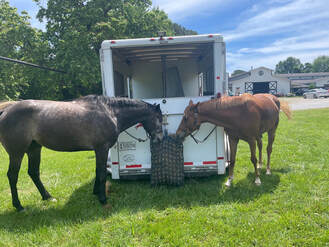 A lot of people have talked to me lately about buying or selling a horse. The Equestrian Voice podcast, Buying and Selling Horses under $40K, is a great resource, but there's added challenges for most people I know in this sport and this part of the country. For those who are searching in an even lower price range, or dealing with the complexities of living in an area (like NWA) that has a very low concentration of eventers and show jumpers, buying a new horse is quite an endeavor! I’ll write another post on selling, but let’s start with the fun part – purchasing! Whether it's your first horse or your 31st horse, if you want to buy a horse you have to start with a good amount of self-reflection. It’s necessary to be honest with yourself about your finances, goals, abilities, and the time/effort you are going to be able to devote to a new animal. No matter your price range, I strongly suggest working with a qualified trainer. The equine industry is all about relationships, and a good trainer may know about horses you wouldn’t be able to find on your own. They can also help you try horses, evaluate what’s suitable, interpret a pre-purchase exam, and navigate the purchase process. If you’re already taking lessons from someone (and want to continue that relationship), please do not go out and purchase a horse without their input! A lot of parents, especially those with a little horse savvy, don’t want to add the expense of a commission to their horse buying experience, but those dollars are going to be insignificant in comparison making a bad choice. Trainer involvement is not just about commission, although it’s likely any commission they receive will be well earned. There’s nothing worse than having a talented kid in your program who has lots of goals and dreams, then seeing that kid end up with a horse who is dangerous, green, lame, or otherwise unsuitable, when they could have a horse who keeps riding FUN for them and allows them to learn. If your trainer is traveling with you, especially long distance, keep in mind that they are likely taking day(s) off lessons and training income to help you find this horse and may even have to arrange for extra expenses in the form of horse or child-care at home. For dedicated travel, I usually request a modest day fee. For horses $10K and up, I will apply this day fee to the commission owed (usually 10% of sale price) once a horse is purchased. Before we even start thinking about looking at horses, I ask my clients to consider: 1) BUDGET – The horse’s purchase price is the CHEAPEST part of horse ownership. That being said, a $20,000 horse who has had good care for most of its life is often going to cost less to maintain than a $2,000 rescue. Make a spreadsheet and factor in board, shoeing, veterinary care, insurance, lessons, showing, new equipment, and then multiply all that times 1.5. Unless you’re a professional or a talented ADULT amateur who has brought along horses before, if you’re buying a horse who doesn’t have at least one year of experience doing the things at or above the level you want to do, factor in some training expense as well. After all this is calculated you can take an honest look at what may be available for your horse purchase price. 2) SELF-ASSESSMENT – Write down the following:
3) THE HORSE - THE FUN PART – Don’t even start talking about the horse until you’ve gone through the above budget and self-assessment. Everything in this section should be negotiable. Although a 17hh, 4 year old, dapple grey, WB gelding with four white socks may be the dream, that horse is useless if you can’t ride it. Be aware of your internal prejudices and focus on the behavioral characteristics that are going to help make this relationship most successful. THE RECKONING – It’s possible you may not be able to purchase a horse that meets all your wants and also is in your price range, in that situation you have two options – compromise or consider a lease. The easiest area to compromise in is age. Everyone wants a horse who is under age 10 or 12, but one who is 14 or 15 may have so much more experience, need less riding, not need any additional training, and be significantly more affordable, still while lasting another 10+ years. Have this conversation with your trainer and further develop a list of “must haves” and “would like to haves.” If you can’t afford the horse you need, then a paid lease is a great option! For growing kids or college students with uncertain futures, a lease may also be the most prudent option. So what happens next? If you’re lucky enough to live in a place that has horses who meet your needs within an hour or two, your trainer may be able to set up a few appointments. If you live in a more remote part of the country (like northwest Arkansas), it’s quite likely you may have to travel. Work with your trainer to set up a trip to a more concentrated location (such as Houston, Ocala, or Aiken) where you can look at multiple horses over the course of a day or two. Your trainer may post an ISO advertisement online or on various groups, do online searches of popular sites, and make phone calls to other people they know in the area. It may also be most effective to try horses while you’re already at a big show. I like to send a few ads or videos to my clients ahead of time to get their thoughts, but if I’m setting up a whole day of looking at horses, I likely won’t send them every advertisement ahead of time. Instead, we’ll just focus on how they feel riding and interacting with each horse! Before looking at any horse, I like to have the basics: name, age, breeding, show record, any major quirks or injuries or veterinary considerations written down. I keep this document on my phone and make notes once we are in-person. If possible, whenever I’m looking at horses with a client, I like to see the horse get caught from a paddock/field or in a stall, experience how they are for grooming and tacking, and then watch them go under saddle with the current owner or trainer riding first. From there I’ll put my client on the horse, and will likely also sit on the horse myself. For most clients if they have concerns getting on the horse after watching the current owner or trainer ride it, it’s not going to be a good fit. If at any point the ride is going very poorly, it’s time to get off. There’s NO shame in walking away at that point, you do not owe it to the seller to ride it out on every horse, especially if it’s not what you are looking for. Once I’m in front of the seller, I like to discuss things such as what the horse’s regular routine is, the horse’s personality, what tack they use and why, what the horse eats, what its turnout routine is, etc. If a seller thinks a horse has particular limitations or would prefer a particular job, I want to know WHY they think that. It’s important to make sure that the horse will be happy and comfortable in their new situation. While not every horse is currently in the optimal situation, a horse who is taken from a busy barn where he is turned out in a herd for 12 hours every night and worked every day, will likely have a drastic personality change (potentially for the worse) if he’s brought to a back yard barn, turned out with one other horse for a few hours a day, and ridden for 30 minutes 2-3 days a week. After trying 5-10 horse, ideally we’ve narrowed the search down to 1-2 good options. From there I usually get clients to pick their favorite and we schedule a vetting. This vetting needs to take into account the horse’s future use. If the horse is going to have a very low impact career and is coming from a person we trust and who knows the horse’s history or is willing to share current x-rays or medical records, anything more than a brief vetting may not be necessary. I could write an article on pre-purchase exams, but it’s important to remember that the vet’s job is to find issues and potential issues, and they will find something – the question is how much of an expense will it be later to fix or maintain, and will that something be likely to impede the horse from its intended future use. If the answer is clearly yes, it’s necessary to pass on that horse and move on to a second choice or start the search again. Vettings can also be used as a data point in price negotiation, however, in the current market most horses are selling for very close to asking price. If my client has gone through the whole process above and we’ve found a good one, I usually make a verbal offer to the seller – if it’s accepted, we draw up a contract and make arrangements for getting the horse home!
|
Details
Christy ZweigAdventures eventing as a semi-pro in the mid-south. Archives
April 2024
Categories |
||||||||
Proudly powered by Weebly

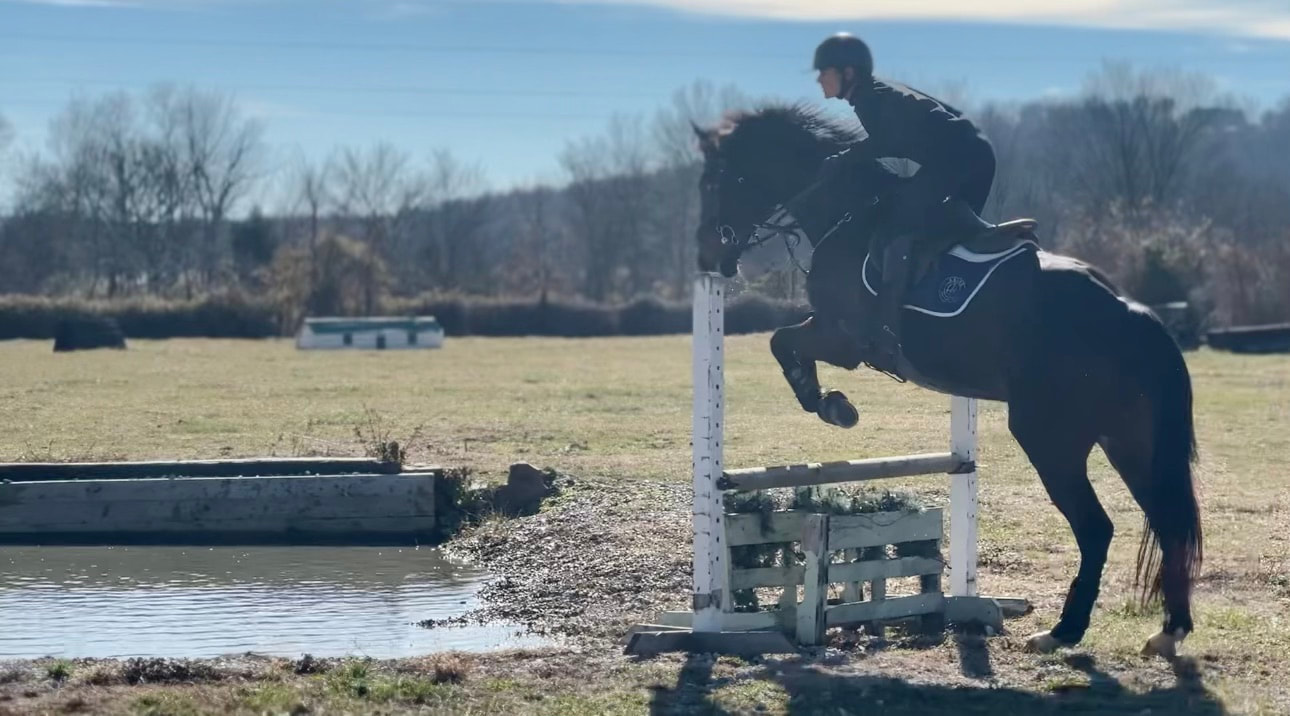
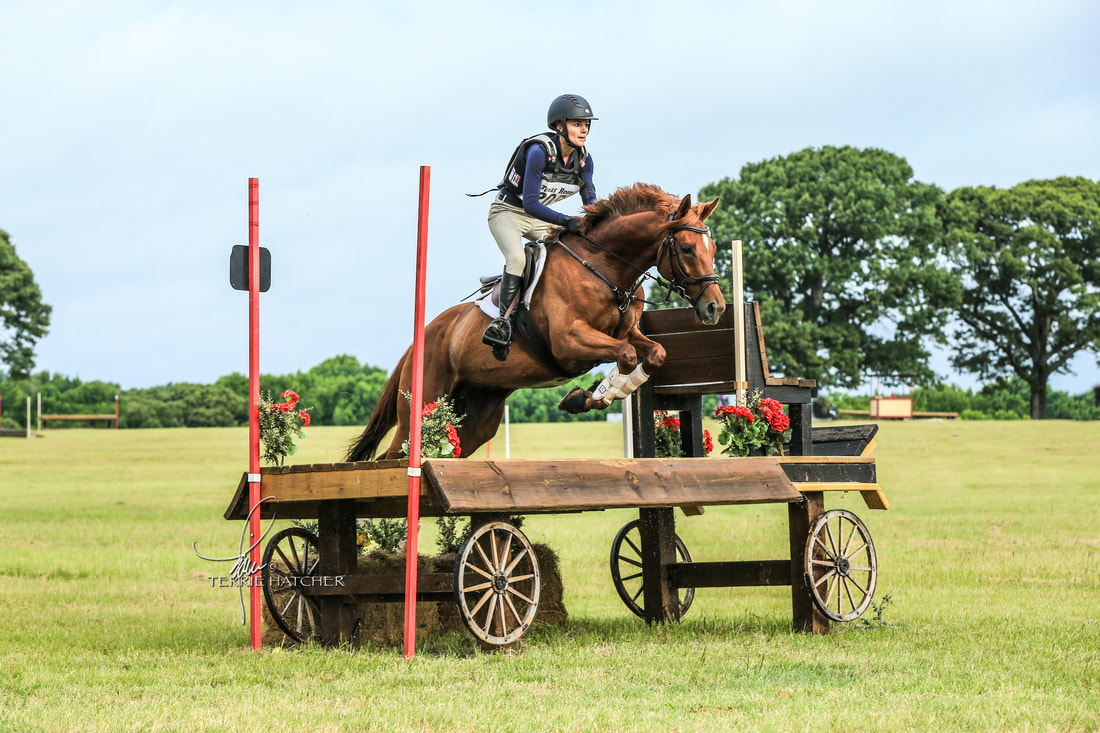
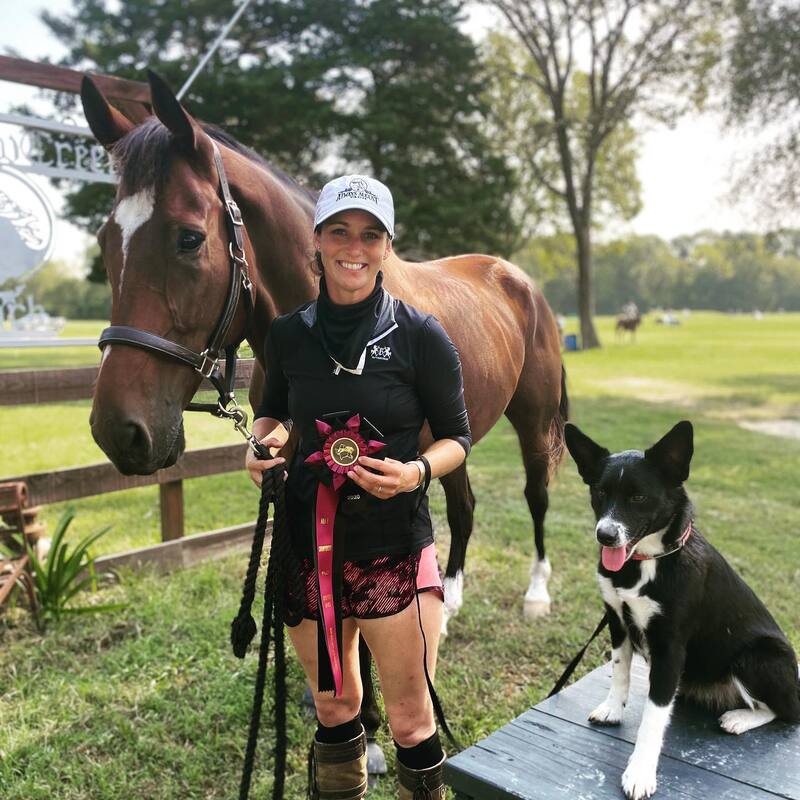
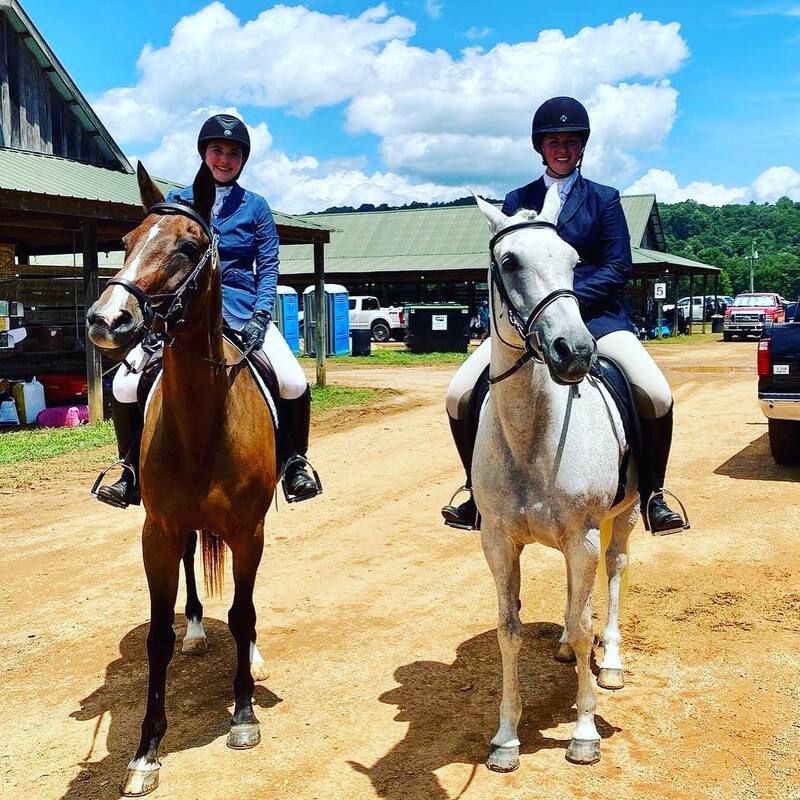
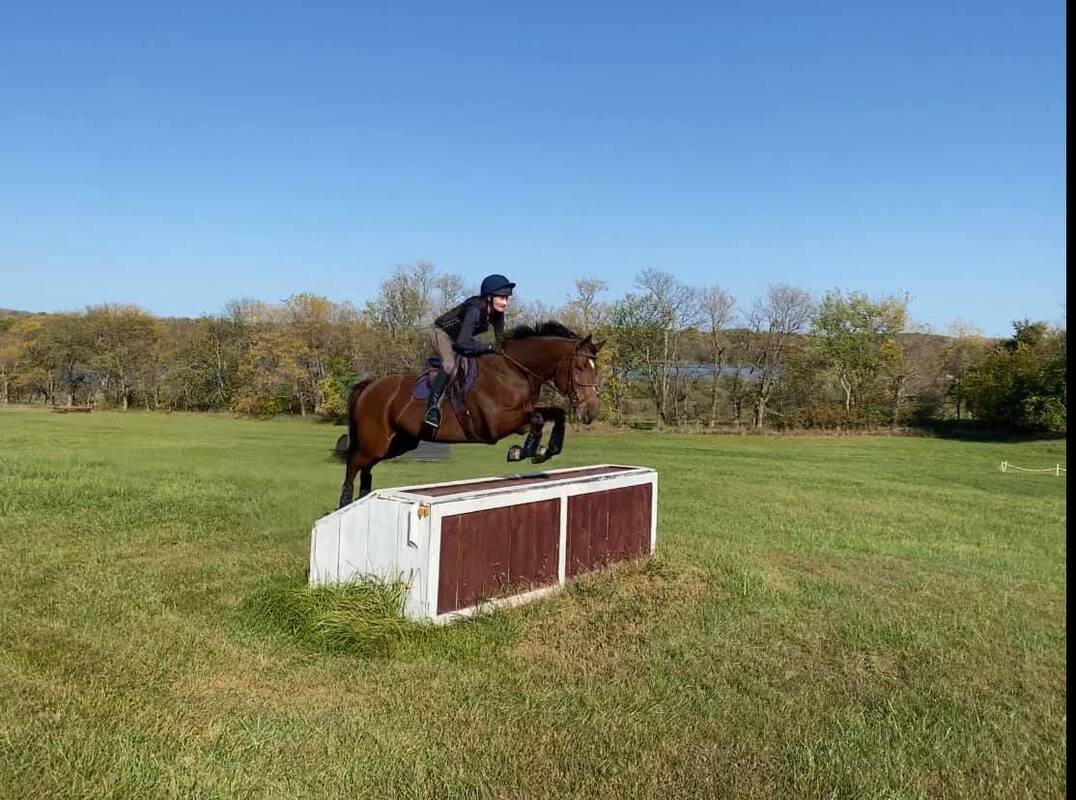
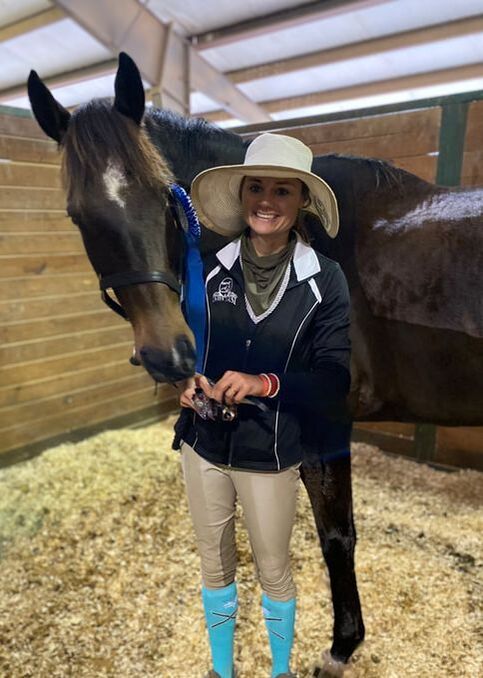
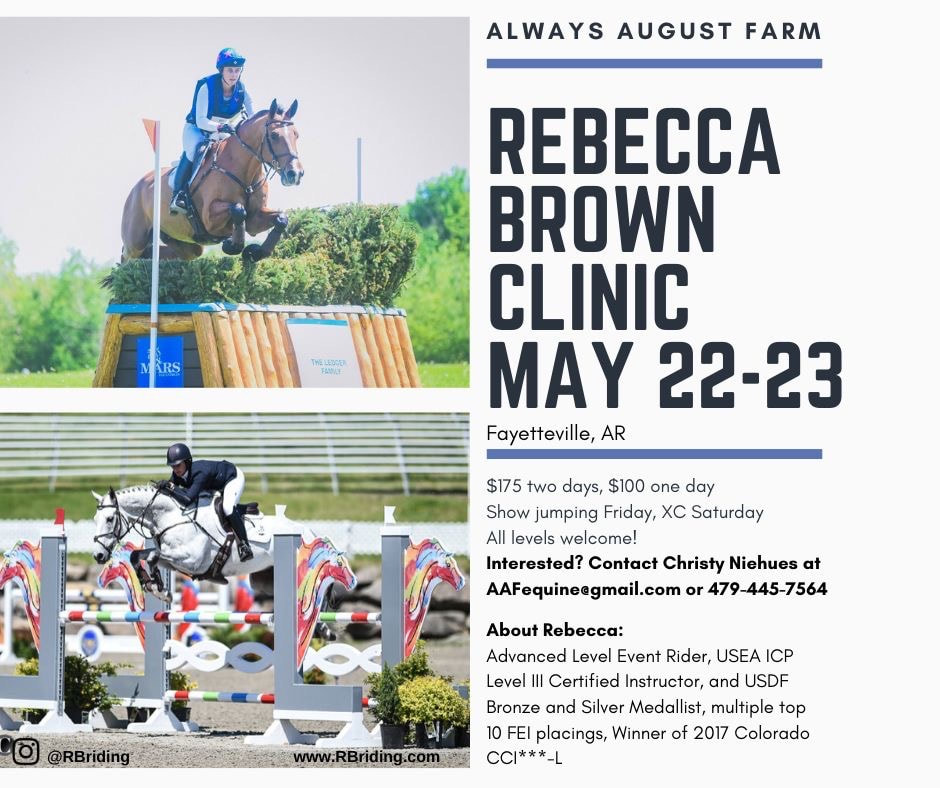
 RSS Feed
RSS Feed